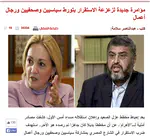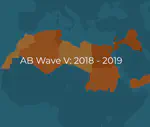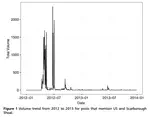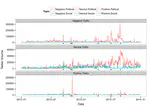Views of the West and Conspiracy Theories in the MENA Region
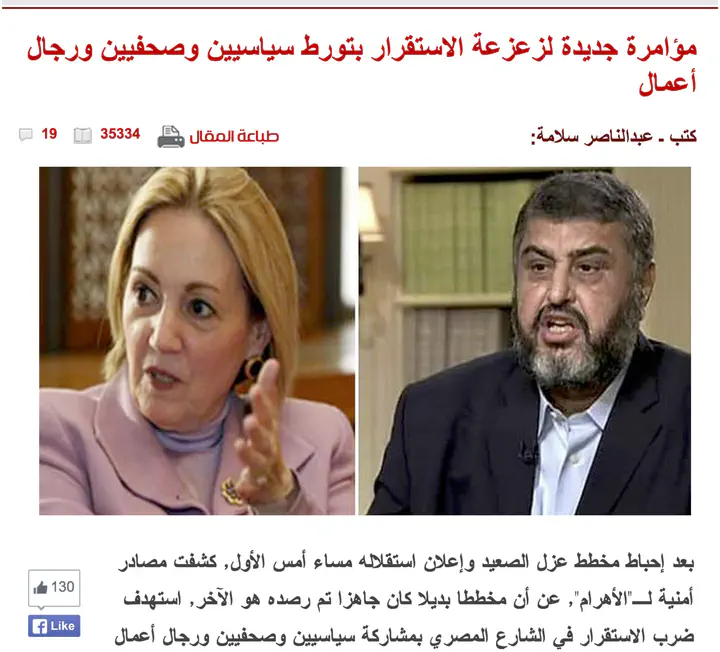 From al-Ahram - front page article alleging conspiracy involving then US Ambassador Anne Peterson and a Muslim Brotherhood leader, among others
From al-Ahram - front page article alleging conspiracy involving then US Ambassador Anne Peterson and a Muslim Brotherhood leader, among othersNegative sentiment toward the US is pervasive, and this project was originally started to use social media (Twitter specifically) to explore the reasons for these attitudes. Early publications focused on the views of Arabic Twitter toward the US, using data from Brandsight (formerly Crimson Hexagon). We explored these views either in response to salient events (e.g. US intervention, terrorist attacks, etc.—see this publication) or in relation to salient political issues (e.g. the rise of the Islamic State or ISIS—see this publication). This work was carried out with collaborators Amaney Jamal, Bob Keohane, and Dustin Tingley.
Exposure to US-related misinformation and conspiracy theories in Arabic social media then moved me to explore factors surrounding the supply and demand for conspiracy theories in the Arab Middle East. On the supply side, I partnered with Gabe Koehler-Derrick and Rich Nielsen to explore the use of conspiracy theories by the Egyptian regime (in this working paper). On the demand side, I also continued my partnership with Amaney and Dustin to field a conjoint experiment in the fifth wave of the Arab Barometer survey. In this experiment, we looked at both micro-level (e.g. attitudes toward the US, political knowledge, etc.) and macro-level (e.g. country-level sectarianism and experience with US-led intervention) factors that help predict belief in US-related conspiracy theories in the Arab Middle East. This working paper is a product of that experiment.
Currently, I lead a team of RAs and continue my work with Rich and Gabe to explore the supply of conspiracy theories in other Arab MENA countries—specifically Iraq, Jordan, Saudi Arabia, and Tunisia. Using web-scraping tools available in R, we are gathering one of the largest datasets of Arabic news media in the world to help us explore how the supply of conspiracy theories is related to regime type.
